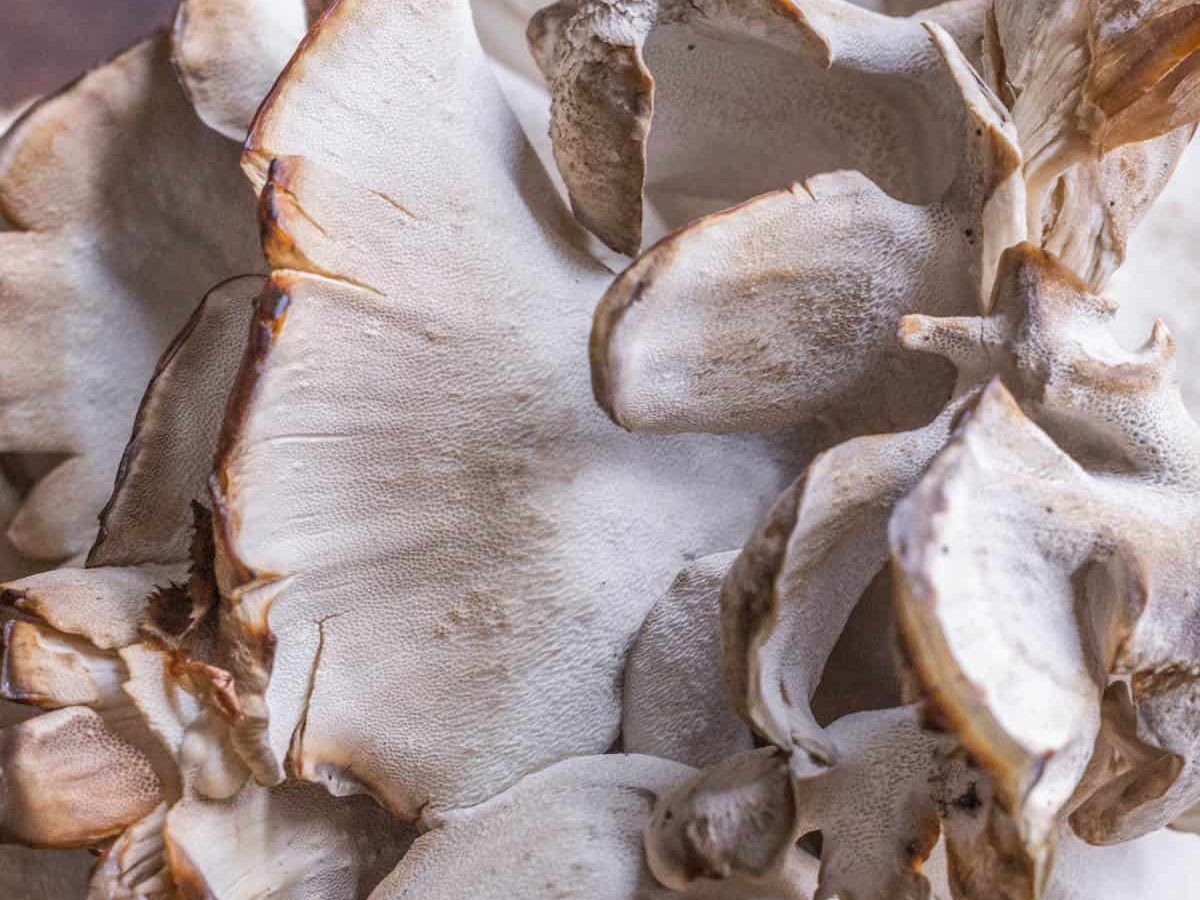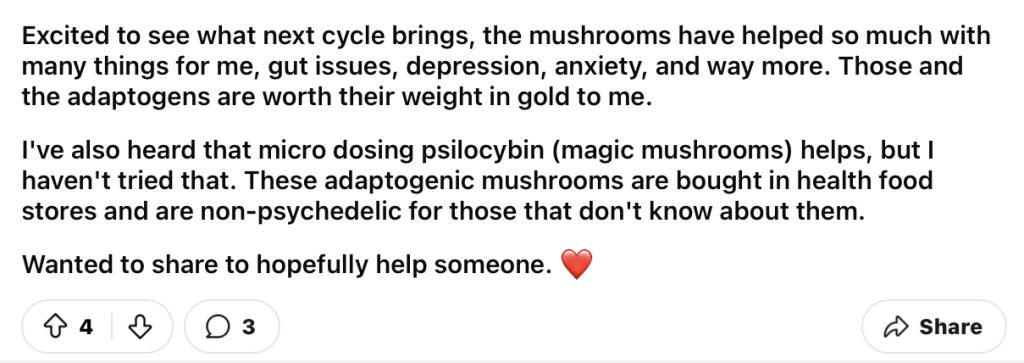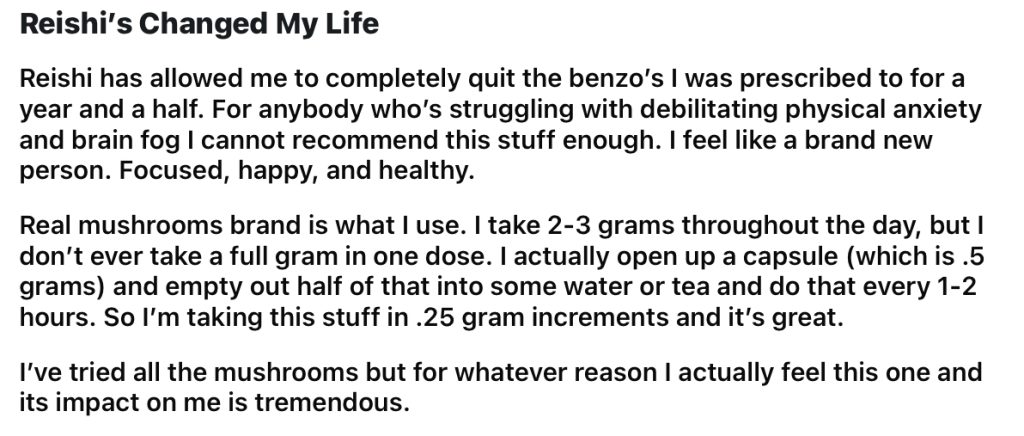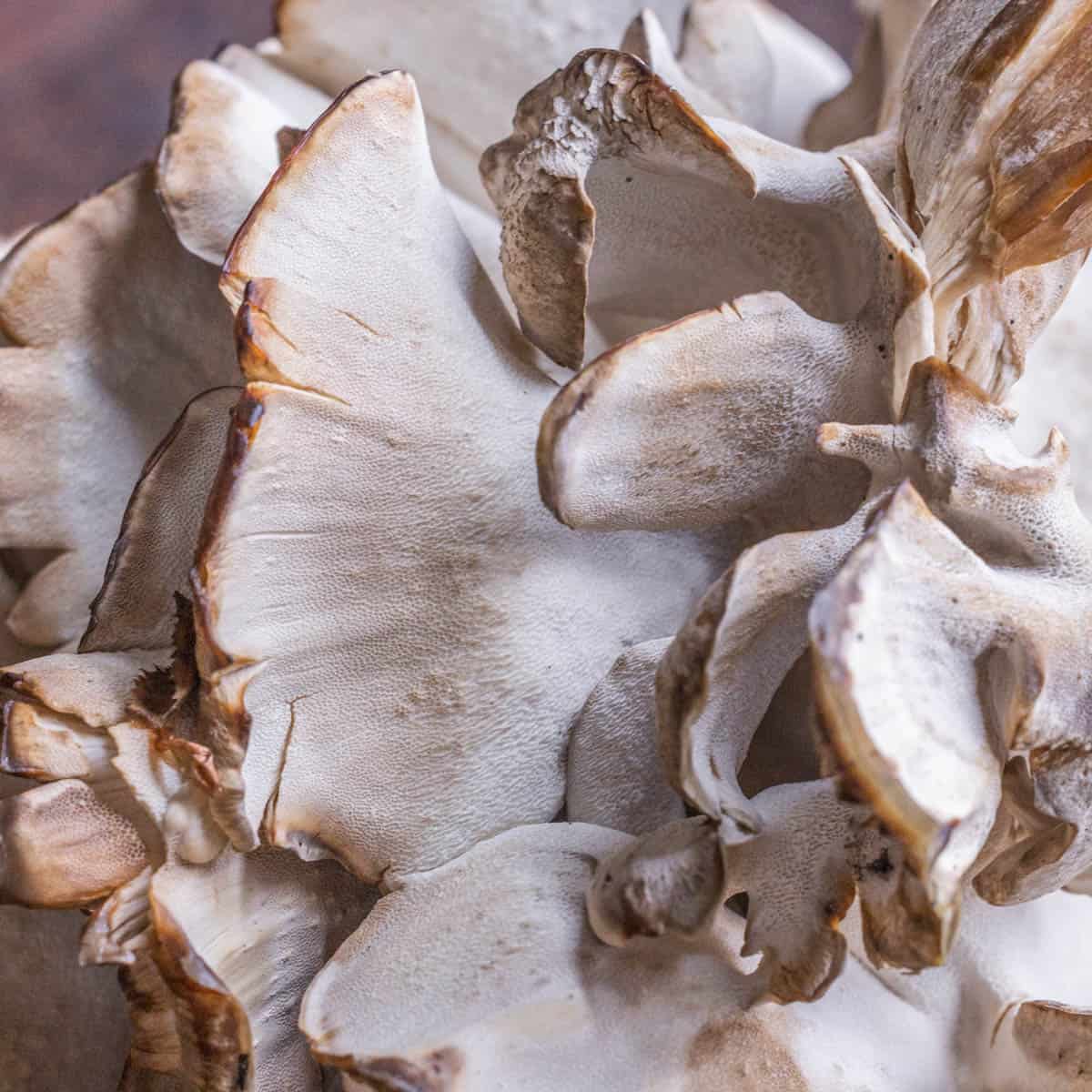So, I’m walking into local Holland & Barrett, and I spot discounted Maitake mushrooms labelled “for Relax.” I had zero clue what they were, but hey—why not try something new? I tossed them in my basket, and honestly, the results were wild, well not that ‘wild’ as might imagine, 😉 but almost immediately felt calmer. I’d say it’s better than magnesium or CBD—nothing has worked quite like these ‘dancing’ mushrooms.
So i did a research and found this;
What Are Maitake Mushrooms?
Maitake mushrooms (Grifola frondosa) are native to Japan, China, and parts of North America, popping up in the autumn. “Maitake” literally means “dancing mushroom” in Japanese—legend has it, people danced with joy when they discovered its health benefits! These mushrooms are packed with nutrients, and actually offer medicinal benefits. They’re low in calories, low in salt, cholesterol-free, and super easy to cook. Plus, their woody taste is perfect for soups, stir-fries, and even risotto.

Why Maitake Mushrooms Are a Superfood
Maitake mushrooms are adaptogens—herbs and fungi that help your body adapt to stress. Here’s what the science says:
1. Blood Sugar & Diabetes Support
Animal studies show that maitake extracts can lower blood sugar by helping your body use insulin more effectively. The magic comes from their polysaccharides, alkaloids, and special fatty acids, which boost insulin signaling and glucose uptake.
Full study: PMC11068609, 2024
2. Lowers Cholesterol
Maitake mushrooms have been shown to slash cholesterol and triglyceride levels in animal studies—by up to 80%! They also help your body get rid of cholesterol through increased excretion.
Read the research: PubMed, 1997
3. Hormone Balance & Female Health
If you struggle with PMS, PCOS, or hormone imbalance, maitake might be your new best friend. They support blood sugar balance, reduce inflammation, and even help regulate menstrual cycles. Some studies suggest maitake can help women with PCOS get pregnant and manage their cycles naturally.
More info: Mushrooms for Life, 2022
4. Adaptogens & Thyroid Support
Adaptogenic mushrooms like maitake can help balance your stress response (the HPA axis), which is huge for people with thyroid conditions like Hashimoto’s. They help your body handle stress, inflammation, and even support healthy thyroid function.
Read more: Thyroid Pharmacist, 2022
5. Immune & Anti-Inflammatory Power
Maitake mushrooms are loaded with antioxidants and beta-glucans that boost your immune system, fight inflammation, and may even help prevent certain cancers.
Comprehensive review: PMC11068609, 2024
How to Use Maitake Mushrooms (Easy Ideas)
- Stir a spoonful of dried mushroom powder into your morning smoothie.
- Add to scrambled eggs or omelets for a savory twist.
- Toss into a veggie stir-fry or risotto for extra flavor.
- Mix with honey and add to your coffee for a wellness boost.
- Make a rich mushroom stock for soups and stews.
- Roast with garlic and olive oil for a simple side.
- Pair with asparagus, spinach, or courgette—or toss into a beef curry!
- Try them with brown rice, gluten-free pasta, or chickpea spaghetti.
Wild Vs Cultivated
Hens are grown commercially and sold in stores (check your local Asian market). Unfortunately store-bought maitake just aren’t as good as wild. To me they taste like button mushrooms in a different form, which is probably due to both fungi being cultivated on similar substrates.
Social media research; I didn’t find much about Maitake, but I did find some information about Japanese mushrooms.






Have you tried maitake or other Japanese mushrooms? Drop your experience in the comments!
References
- Maitake Mushroom Benefits – Holland & Barrett, 2022
- Antidiabetic and Health Benefits of Maitake Mushrooms – PMC11068609, 2024
- The Effect of Maitake Mushrooms on Lipids – PubMed, 1997
- Medicinal Mushrooms for Hormonal Imbalance – Mushrooms for Life, 2022
- Adaptogenic Herbs for Thyroid Support – Thyroid Pharmacist, 2022
Ready to dance with Maitake? Your hormones, thyroid, adrenals will thank you!



Leave a Reply